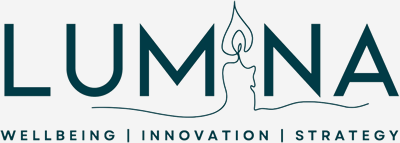Empowering employees through coaching in the workplace demands a profound understanding of the interplay between professional development and personal wellness. By adopting a wellness perspective rooted in the Te Whare Tapa Whā model—a Māori holistic health framework—coaching can transcend traditional goals of skill enhancement and performance improvement, to embrace a comprehensive view of an employee’s well-being and job satisfaction. This framework suggests that just as a whare (house) needs four walls to remain strong, people require four dimensions to be balanced: physical health, mental health, family (social health), and spiritual health. Applying this to the workplace, coaching recognizes that professionals, like educators, achieve their best when they are supported robustly in all these facets, both within their professional roles and personal lives.
The concept of ‘coaching for enhanced performance’ subtly but significantly shifts focus from correcting deficiencies to reinforcing existing skills and introducing innovative strategies within a nurturing environment. This shift respects employees’ professional competence and contributions, avoiding implications that their current methods are inadequate. Instead, it presents coaching as a tool for exploring new possibilities in their roles and personal development, fostering an atmosphere where innovation and experimentation are supported and valued.
A wellness-oriented coaching model, underpinned by the Te Whare Tapa Whā, prioritizes the mental and emotional health of employees, along with their physical and spiritual wellness. It acknowledges that work, akin to teaching, is not merely a job but a vocation involving substantial emotional engagement and personal investment. By weaving wellness into the coaching process, coaches can aid employees in managing stress, preventing burnout, maintaining a healthy work-life balance, and nurturing spiritual well-being, thereby aligning with the understanding that an employee’s effectiveness is deeply interconnected with their holistic health.
While self-reflection is a crucial component of professional growth, it is confined by our biases and limited experiences. External input, facilitated by a coach, introduces diverse viewpoints that challenge these biases and open fresh ways of thinking and working. This method not only aims to enhance performance but also enriches the employee’s professional life and overall sense of fulfillment, reflecting unexplored possibilities and hidden strengths.
In practice, coaching with a wellness lens—guided by the Te Whare Tapa Whā model—involves establishing strong, trust-based relationships between coaches and employees. These relationships provide the foundation for meaningful discussions about both professional goals and personal aspirations. Coaches knowledgeable in wellness strategies offer support tailored to the unique stresses of the professional environment while also addressing the physical, mental, social, and spiritual dimensions essential for a fulfilling life both inside and outside work settings.
Furthermore, the role of a coach, as described, is inherently empowering. A coach focused on wellness not only promotes improved workplace practices but also champions the overall well-being of the employees they support. This dual focus ensures that coaching is perceived as a beneficial, empowering tool rather than a burdensome obligation or remedial measure, honoring the foundational principles of coaching and emphasizing its role in facilitating professional and personal growth through reflective practice, empathetic listening, and targeted feedback.
Empowering employees through wellness-oriented coaching, grounded in the Te Whare Tapa Whā model, creates a more supportive and effective work environment. When employees are well in all dimensions, they are more engaged, creative, and resilient—qualities that directly enhance workplace productivity and culture. Ultimately, a coaching model that embraces holistic wellness not only boosts workplace outcomes but also nurtures the physical, emotional, social, and spiritual health of employees, ensuring they, and the organizations they work for, thrive.
If you are interested in a korero around this or think your organisation might need some support. It would be great to have a chat.
